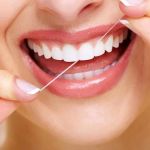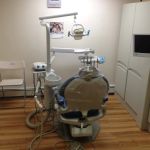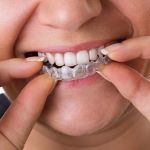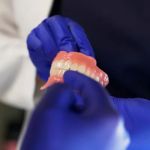Does Dry Mouth Cause Lips to Crack or Feel Dry?
In our busy lives, we often overlook the subtle signs our bodies give us. One such signal is the uncomfortable sensation of a dry mouth, medically known as xerostomia. It's more than just a minor inconvenience; for many, it's a persistent issue affecting oral health and overall well-being. But how does it relate to the dryness or cracking of our lips? In this article, we'll delve into the potential connection between dry mouth and lip conditions, particularly relevant for our readers in the United States, where climate and lifestyle can exacerbate these issues.
The Connection Between Dry Mouth and Lip Health
Dry mouth occurs when the salivary glands in your mouth don't produce enough saliva. This lack of moisture can lead to a range of oral health problems, but one of the most immediate and visible effects is on your lips. When your mouth is dry, your lips are deprived of the natural lubrication needed to keep them soft and moist. This can lead to cracking and dryness, making them appear chapped and flaky. According to studies, dry mouth affects nearly 20% of adults in the United States, highlighting the widespread nature of this condition and its potential impact on lip health.
Contributing Factors of Dry Mouth Inducing Lip Issues
Various factors can exacerbate dry mouth, further impacting lip health. Medications are a common culprit, with those for allergies, depression, and hypertension often listed among the offenders. Additionally, lifestyle habits such as smoking or excessive caffeine intake can contribute to a decrease in saliva production. For Americans, particularly those living in dry or windy regions, environmental factors also play a significant role. The combination of these elements creates a perfect storm for dryness and irritation of both the mouth and lips. Understanding these contributing factors is crucial in managing symptoms effectively and maintaining optimal lip health.
Health Implications and Treatment Options
Lip dryness resulting from xerostomia is more than a cosmetic concern; it can lead to discomfort, sores, and even infection. The absence of adequate saliva affects how food tastes, increases the risk of dental decay, and makes it challenging to speak or swallow. Addressing these symptoms involves identifying and mitigating underlying causes as much as possible. Over-the-counter saliva substitutes, moisturizing lip balms, and maintaining hydration are simple yet effective strategies. It's also essential to consult with a healthcare professional to explore medications or treatments tailored to individual needs, ultimately improving both oral health and quality of life.
Lifestyle Adjustments to Manage Symptoms
Managing dry mouth and its effects on the lips doesn't solely rely on treatment; lifestyle changes play a significant role. Increasing water intake is fundamental, as it helps to keep your mouth and lips hydrated. Additionally, chewing sugar-free gum can stimulate saliva production, providing a temporary relief from dryness. Dietary modifications, such as reducing sugar and acidic foods, can prevent further irritation. For those in particularly dry climates, using a humidifier at home can add moisture to the air, alleviating symptoms. By implementing these changes, individuals can significantly reduce the impact of dry mouth on their lips.
Conclusion: Taking Action Against Dry Mouth
In conclusion, the relationship between dry mouth and cracked or dry lips is significant and often overlooked. By understanding the underlying causes and actively managing symptoms, individuals can protect their lip health and improve their overall well-being. If you experience persistent dry mouth and its associated lip issues, consider consulting a healthcare provider to tailor a treatment plan to your specific needs. Utilizing resources like those available at Dentistry Toothtruth can provide further insights and support. By taking proactive steps, you can mitigate the effects of this common condition and maintain a healthy, confident smile.

 Lincoln Commons Dental Associates PA5.0 (1 review)
Lincoln Commons Dental Associates PA5.0 (1 review) Midtown Dental4.0 (68 review)
Midtown Dental4.0 (68 review) Nanuet Family Dentistry: Dr. Srinivasa5.0 (2 review)
Nanuet Family Dentistry: Dr. Srinivasa5.0 (2 review) Gentle Dental Service4.0 (113 review)
Gentle Dental Service4.0 (113 review) Aspen Dental - Acworth, GA4.0 (366 review)
Aspen Dental - Acworth, GA4.0 (366 review) The Art of Dental Wellness5.0 (127 review)
The Art of Dental Wellness5.0 (127 review) The Importance of Oral Health Education During Pregnancy for a Healthy Pregnancy
The Importance of Oral Health Education During Pregnancy for a Healthy Pregnancy Best Tips for Brushing Your Teeth Properly for Healthy Gums: Essential Techniques for Oral Health
Best Tips for Brushing Your Teeth Properly for Healthy Gums: Essential Techniques for Oral Health Why Skipping Dental Checkups Can Lead to Bigger Oral Health Problems
Why Skipping Dental Checkups Can Lead to Bigger Oral Health Problems Advantages of Porcelain Dental Restorations
Advantages of Porcelain Dental Restorations How Can Diabetes Cause Tooth and Gum Problems? Preventing and Managing Oral Health Issues
How Can Diabetes Cause Tooth and Gum Problems? Preventing and Managing Oral Health Issues Healthy Habits for Promoting Good Oral Health and Hygiene: Tips for a Healthy Smile
Healthy Habits for Promoting Good Oral Health and Hygiene: Tips for a Healthy Smile